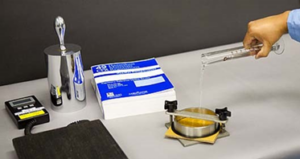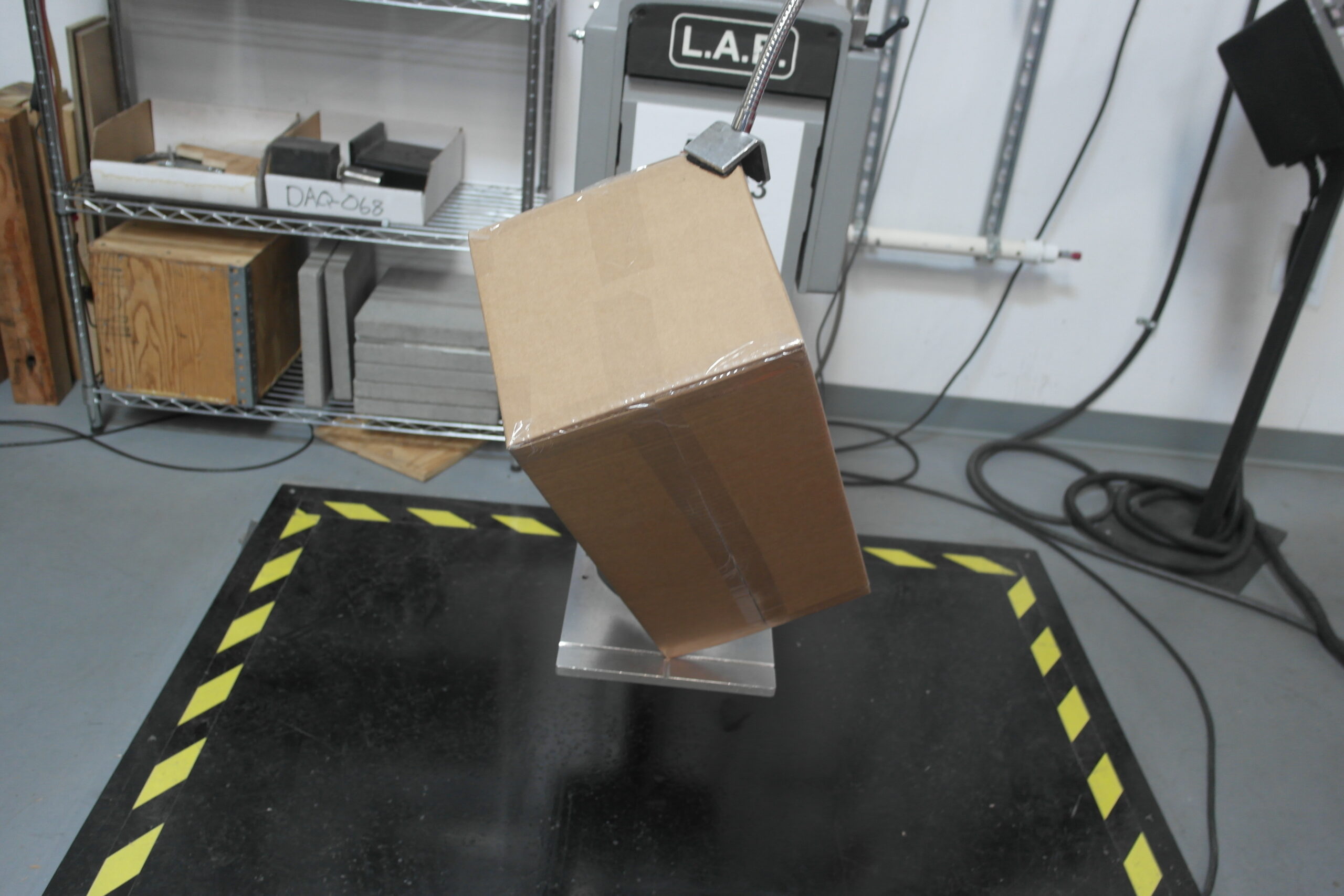
Transportation Simulation testing, Compression testing, Incline Impact Testing, Shock testing, Vibration testing, and Temperature and Humidity testing are all featured in our battery of tests to simulate the shipping environment that your package will be subjected to during its normal course of shipping. These include tensile strength, flexural strength, and freezing point to provide the answers about what your optimal packaging materials and properties should be.
Rocky Mountain Testing Solutions is a third-party package testing lab in Salt Lake City, UT, that performs a variety of controlled tests for packages and manufactured products. We offer physical and performance package testing to give you competitive knowledge about the destruction and transportability of packages.
Reach out today to learn more about our testing capabilities.
Package Integrity Testing
The goal of package testing is to ensure that the product and packaging make it to its final destination in one piece. Undivided objects that are protected from external hazards will prevent patient or consumer problems when utilizing your products.
Package Integrity looks at leakage, seals, container closure, and container failure while your product is being transported. For items like perishables or medical supplies, this testing is extremely important to ensure that the substance is non-threatening to the patient.
One test, ASTM F2096 or the bubble leak test, will internally pressurize the package until the package fails.
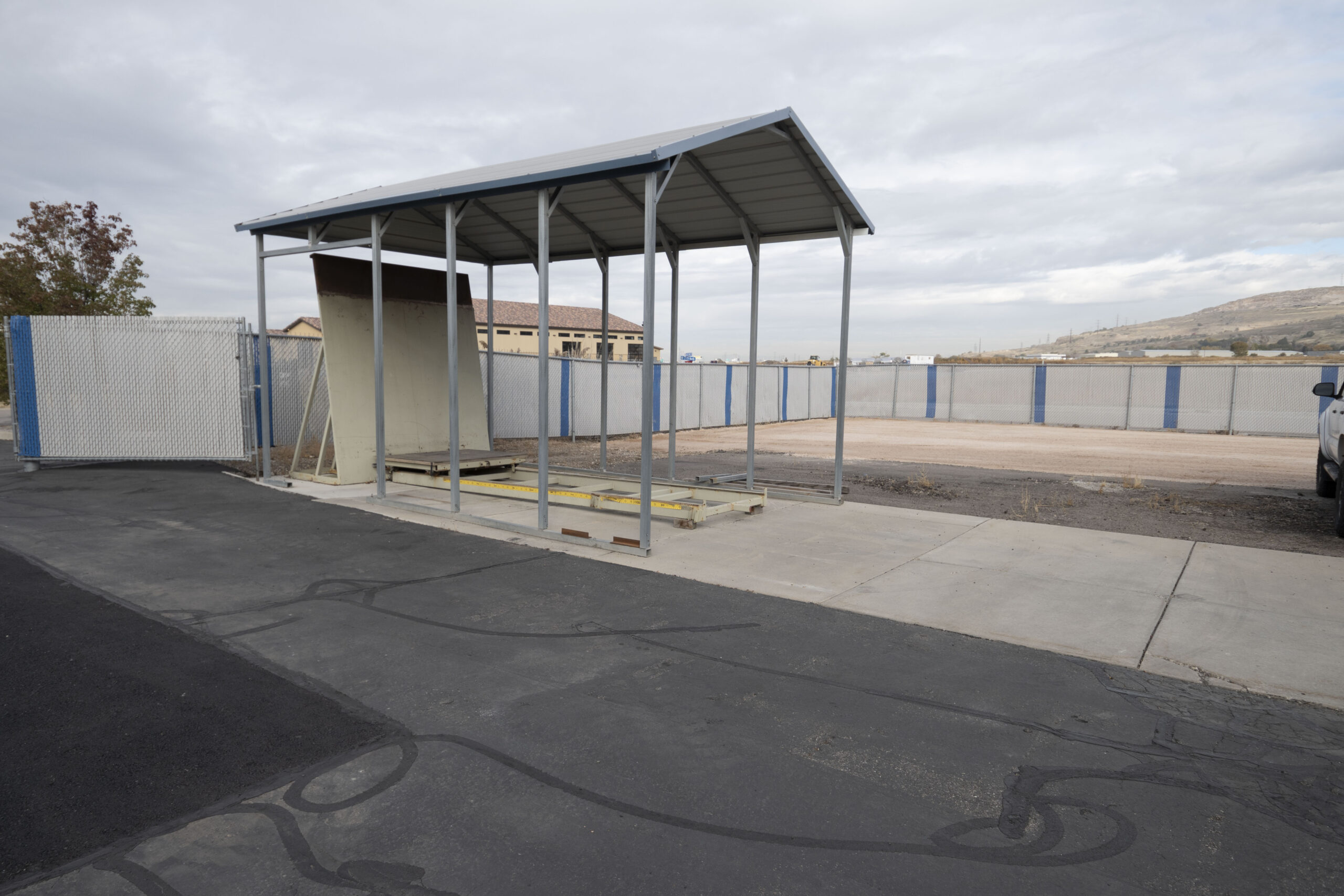
Certified Testing Laboratory Per Protocols
1A, 1B, 1C, 1D, 1E, 1G, 1H, 2A, 2B, 2C, 3A, 3B, 3E, 3F, 3K, 7D, 6-FEDEX-A, 6-FEDEX-B, 6-SAMSCLUB, 6-Amazon.com Over Boxing, 6-Amazon.com SIOC Type A-H
Our Package Testing capabilities include the following:
- Environmental package testing
- ISTA/ASTM package testing
- Food packaging testing
- Package validation testing
- Package drop testing
- Impact testing
- Packaging shelf life studies
- Consumer product testing
- Consumer product safety testing
- Medical device package testing
- Incline Impact testing
- Production testing services
These are some of the consumer product testing standards that our lab can reliably test your packages to:
- ASTM
- ASTM B117
- ASTM 1980
- ASTM F2096
- ASTM 4169
- ATSM 4169 testing
- ASTM 4169 package testing
- ASTM 4169 shipping test
- ISTA
- ISTA testing
- ISTA package testing
- ISTA 1A
- ISTA 2A
- ISTA 3A
We feature the LAB AccuDrop 160 Drop Tester which is used to determine the ruggedness of packages and the effectiveness of their interior cushioning when they are exposed to impacts and drops during handling operations. The abuse inflicted on packages by human or equipment handling is easily duplicated with the LAB AccuDrop 160 Drop tester. The LAB drop tester’s large drop zone and adjustable drop height meet ISTA and ASTM standards.
Rocky Mountain Testing Solutions features the LAB 4000V Transportation Simulator which is used to determine the ability of packages and products to withstand shock and vibrations encountered during the course of typical transportation. The Lab 4000v provides Circular-Synchronous and Non-Synchronous motions that meet the ISTA and ASTM standards. These motions best reproduce the effects packages will experience during actual package shipment.
Package Strength Testing
Package strength testing and package integrity testing are common test requirements for medical device packages and products. Package strength testing looks at the force required to separate two components of the package while package integrity testing looks at the package’s integrity to maintain a proper seal and prevent leakage.
Package strength testing includes burst ASTM F1140 and seal peel ASTM F88 testing.
ASTM F1140 is also referred to as a burst test. These tests determine the ability of packages to withstand internal pressurization. Burst testing determines package strength by pressurizing a package until it bursts.
Peel Adhesive Testing
Peel Adhesive Testing is performed to show the integrity of an adhesive bond. Seal peel testing determines the strength required to peel apart the seals for porous and nonporous packaging in accordance with ASTM F88 “Standard Method for Seal Strength of Flexible Barrier Materials.” This test method covers the measurement of the strength of seals in flexible barrier materials.
This mechanical test uses tensile force on the substrate (tape, thin film, or rubber) or a rigid substrate (metal, rigid plastic, or composite) to understand peak force, force over the seal, and peel strength. A burst test can also fall under the category of Package Strength or Peel Adhesive Testing. It also identifies the mode of specimen failure. Some seals should be designed to break under a low amount of force, while other industries like the automotive industry, need to remain sealed under extremely pressurized conditions.
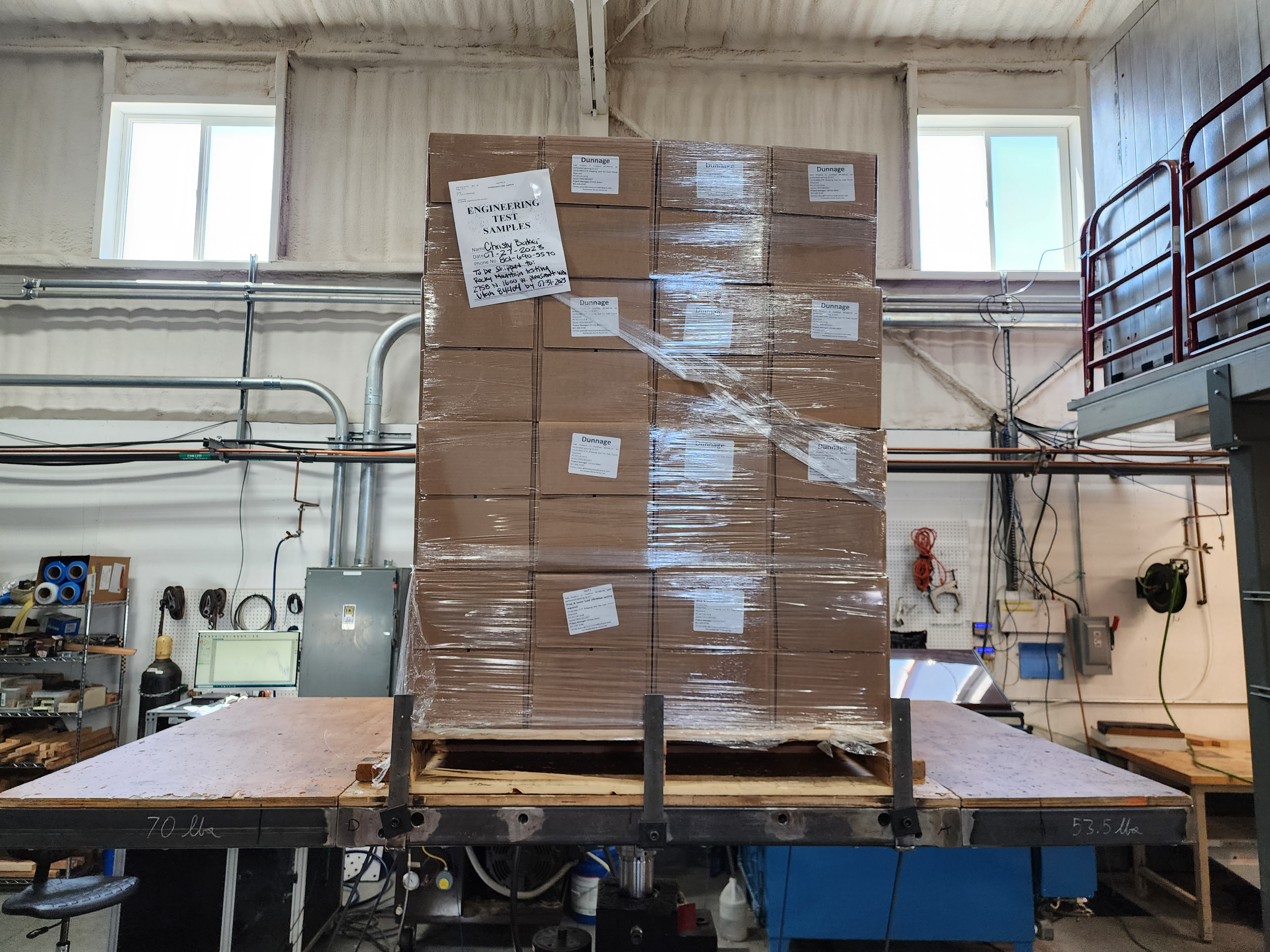
The Importance Of Vibration Testing In Package Testing
RMTS has added ASTM and ISTA package testing services to our lab in order to help test your packages for transportation. Our servo-hydraulic shaker helps show manufacturers and business owners how their packages and products will withstand the movement of ground trucks, planes, or trains.
Understanding what the package can handle will help avoid damaged products. Vibration testing equipment helps to stimulate different environments and determine the sensitivity of a product. RMTS looks at the package’s cushioning material and if the protection dissipates or weakens with the force of vibration.
Our testers always perform tests to the specifications of our clients. We help you meet the requirements and regulations that your industry prefers.
Industries served: consumer products, medical, medical device, food, pharmaceutical, composite materials, industrial, and construction materials.
Other Package Strength Tests From RMTS
ASTM F1140 Test Methods for Internal Pressurization Failure Resistance of Unrestrained Packages. These tests determine the ability of packages to withstand internal pressurization. Burst testing determines package strength by pressurizing a package until it bursts.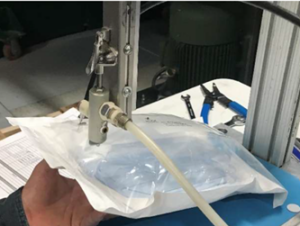
Dye Leak ASTM F1929 “Standard Test Method for Detecting Seal Leaks in Porous Medical Packaging by Dye Penetration.” The dye test involves applying a dye-penetrant solution to the seal edges to locate channel leaks in the package edge seals indicating a failure in the package integrity.
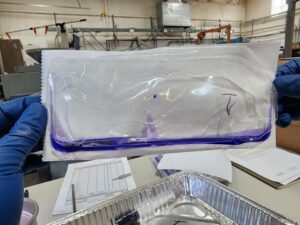
Vacuum Leak ASTM D3078 “Standard Test Method for Determination of Leaks in Flexible Packaging by Bubble Emission.” This test determines gross leaks in flexible packaging containing a headspace gas.
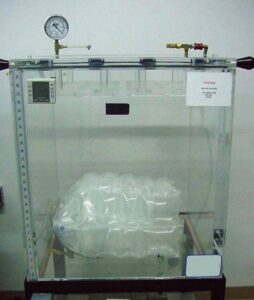
Visual Inspection ASTM F1886 “Standard Test Method for Determining Integrity of Seals for Flexible Packaging by Visual Inspection.” The test is a visual inspection test to detect channel defects in package seals.
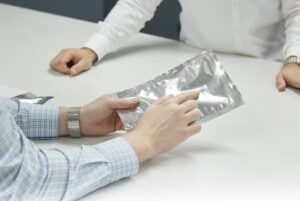
Cobb Testing ASTM D3285 “Standard Test Method for Water Absorptiveness of Non-Bibulous Paper and Paperboard (Cobb Test).” TAPPI T 441 “Standard Test Method for Water Absorptiveness of Sized (Non-Bibulous) Paper, Paperboard and Corrugated Fiberboard (Cobb Test).”
